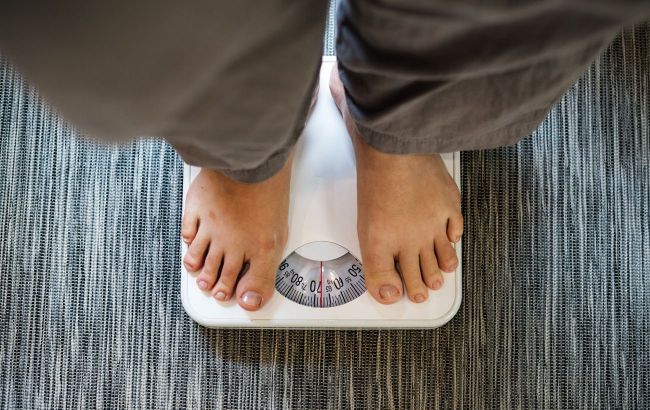Intermittent fasting: Health benefits, сontraindications and risks
 Nutritionist warned of dangers of popular weight loss method (photo: freepik.com)
Nutritionist warned of dangers of popular weight loss method (photo: freepik.com)
When it comes to weight loss, almost all experts say that a calorie deficit is necessary. This deficit can be achieved in various ways - eating less, moving more, utilizing calorie-burning practices, various diets, and the most popular one being intermittent fasting. However, this practice can severely harm the body, according to dietitian Natalia Samoylenko on Instagram.
What is the method
Intermittent fasting or fasting is alternating periods of eating and abstaining from food for 16, 20, 24, 72, or more hours.
Does this method have a positive impact
Yes, and there are many health benefits besides weight loss.
Reduced insulin levels. When you fast, blood sugar levels drop. The body uses glucose in the blood and liver because there is no other energy source. The pancreas produces less insulin to absorb glucose.
Boosted immunity. Fasting triggers the regeneration of old cells in the body, including those that are part of the immune system.
Weight loss. When you eat, the body uses food as an energy source. Anything not used for life support is converted into fat and stays in the body. During fasting, these fats are broken down, i.e., lipolysis occurs.
Accelerated metabolism. Periodic fasting gives your digestive system a break and increases adrenaline levels, which in turn speeds up metabolism. The next time you eat, you will get more energy, and calories will be burned more efficiently.
Detoxification. To ensure continuous metabolism, the brain converts glycogen stored in the liver into energy. After 12 hours, reserves are depleted, and the body begins to burn fats, releasing and removing toxins from the body.
Slowing down aging. Deprivation of nutrients during fasting activates the process of autophagy - the breakdown of old material. New and healthy cells replace old and inactive ones.
So what's the danger?
It all looks perfect, indeed. However, intermittent fasting has hidden "buts" you must know and remember.
Any unbalanced diet, abstaining from certain foods, and intermittent fasting have numerous contraindications and can significantly harm health.
Before starting such fasting, it is worth consulting with a dietitian who practices evidence-based medicine and carefully approaches your diet.
Important! Intermittent fasting as a weight loss system is not recommended for pregnant women, nursing mothers, children, and adolescents. This diet scheme is contraindicated for those who have problems with the stomach, intestines, adrenal glands, thyroid gland, diabetes, and those who suffer from stress overeating.
If you are already on this dangerous path and feel weakness, rapid fatigue, irritability, reduced concentration, dizziness, headache - stop! These are signs of harm to the body.
More serious consequences include hypoglycemia, hypotension (low blood pressure), insomnia, nausea, migraines, fainting, dehydration, eating disorders, and susceptibility to infectious diseases.
Failure to comply with the principles of proper nutrition during eating periods, even in fasting mode, can lead to weight gain and cause insulin sensitivity disorders and, increased blood sugar, cholesterol, deficiency of essential vitamins, macro- and micronutrients, and more.
The digestive tract is susceptible to the eating regimen - prolonged "hungry" intervals can lead to stagnation and thickening of bile and the development of gallstone disease.
In addition, combining intermittent fasting with chronic stress weakens the protective forces of the gastrointestinal mucosa and can contribute to damage, erosion, and ulcers.
Also, remember that the longer you fast, the more your body works against weight loss! Your diet should be balanced and daily.
This material is for informational purposes only and should not be used for medical diagnosis or self-treatment. Our goal is to provide readers with accurate information about symptoms, causes, and methods of detecting diseases. RBС-Ukraine is not responsible for any diagnoses that readers may make based on materials from the resource. We do not recommend self-treatment and advise consulting a doctor in case of any health concerns.

